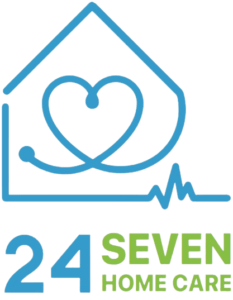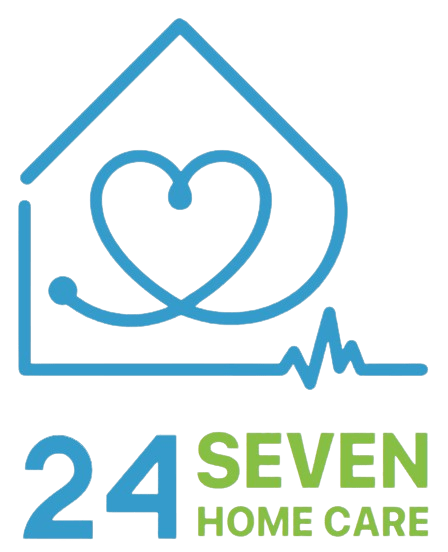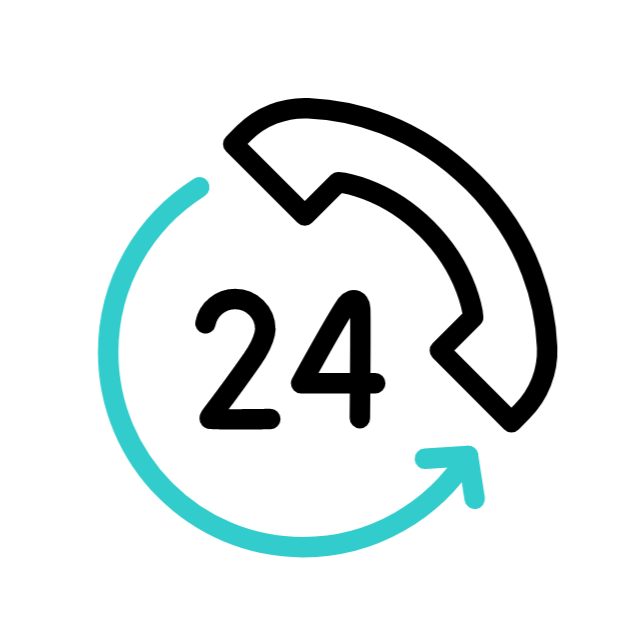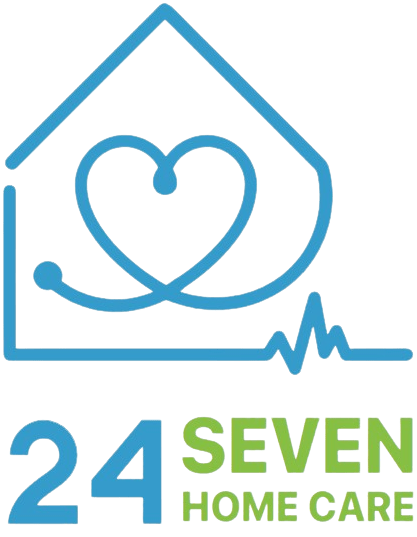Accessing Medical Treatment 24/7 with Home Care in Dubai
Table of Contents
In our increasingly fast-paced society, the importance of readily available healthcare cannot be overstated. Unexpected health challenges can occur at any moment, making the availability of medical services around the clock a reassuring aspect of modern healthcare.
Particularly in Dubai, a city that prides itself on its pursuit of excellence and forward-thinking, the option for round-the-clock home medical care is becoming an essential service for those requiring continuous health management. This blog post delves into the advantages and availability of continuous home healthcare in Dubai, outlining what services are offered and how one can obtain the necessary medical care at any time.
What is 24/7 Home Care?
Continuous home care offers a full spectrum of medical services in your own living space, providing instant access to healthcare professionals and support 24 hours a day. This method of care has increasingly popular in Dubai, appealing because of its convenience, customization to individual health needs, and adaptability.
The Growth of Home Care in Dubai
In recent years, there has been a significant increase in the of domestic care services in Dubai. Multiple factors drive this rise, such as the city’s multicultural and elderly demographic, a growing recognition of available domiciliary healthcare solutions, and progress in healthcare technologies.
Medical Treatment with 24 Seven Home, Comfort and Convenience
A major benefit of continuous home care services is the level of comfort and convenience they provide. Patients have the advantage of receiving medical care in a familiar environment, which helps minimize the stress and anxiety often felt during hospital visits.
Personalized Care
Home care services are tailored to meet individual patient needs. This personalized approach ensures that patients receive the right treatment and attention, enhancing their overall well-being.
Cost-Effective
Home care can be a cost-effective alternative to hospital stays, especially for long-term or chronic conditions. It eliminates the need for hospital infrastructure and reduces the financial burden on patients and their families.
Enhanced Quality of Life
Patients who receive medical treatment at home often experience an improved quality of life. They can maintain their daily routines, enjoy the support of loved ones, and engage in activities they value.
Skilled Nursing Care
24/7 home care providers in Dubai offer skilled nursing care, including wound care, medication administration, and monitoring vital signs.
Rehabilitation Services
Patients recovering from surgery or injury can access rehabilitation services at home, including physical therapy, occupational therapy, and speech therapy.
Home Health Aides
Certified home health aides provide assistance with activities of daily living (ADLs), such as bathing, dressing, and meal preparation.
Palliative and Hospice Care
Patients with serious illnesses can receive palliative and hospice care at home, ensuring comfort, pain management, and emotional support during challenging times.
Medical Equipment and Supplies
Home care providers can arrange for the delivery of necessary medical equipment and supplies, such as oxygen, mobility aids, and wound care products.
How to Access 24/7 Home Care in Dubai
Consultation with a Physician
To access 24/7 home care services in Dubai, start by consulting with a physician. Your doctor can assess your medical needs and recommend home care as an appropriate option.
Choose a Reputable Home Care Provider
Research and select a reputable home care provider in Dubai. Look for providers with experienced medical staff, positive patient reviews, and a commitment to high-quality care.
Assessment and Care Plan
Once you choose a home care provider, they will conduct an assessment to develop a personalized care plan tailored to your specific needs and preferences.
Schedule Services
Coordinate with the home care provider to schedule services as needed. Depending on your condition, you may require round-the-clock care, daily visits, or intermittent assistance.
Ongoing Communication
Maintain open communication with your home care team. Regular updates and feedback help ensure that your care plan remains effective and adaptable to your evolving needs.
The Future of 24/7 Home Care in Dubai
Technological Advancements
As technology continues to advance, the future of 24/7 home care in Dubai looks promising. Innovations such as telemedicine, wearable health devices, and remote monitoring will enhance the quality and efficiency of home-based healthcare.
Training and Workforce Development
To meet the growing demand for home care services, Dubai will likely invest in training and developing a skilled workforce of healthcare professionals and caregivers specialized in home-based care.
Integration with Traditional Healthcare
The integration of home care services with traditional healthcare systems will ensure seamless transitions between home care and hospital care, providing patients with a comprehensive continuum of care.
Benefits of 24/7 Home Care in Dubai
Comfort and Convenience
Home is the place where we’re most comfortable. For individuals facing health challenges, being in the familiar surroundings of their own residence can greatly enhance their overall health. The experience of hospitalization can be unsettling and stressful. On the other hand, receiving care at home allows individuals to be treated in the presence of loved ones and amidst their personal belongings, fostering a sense of security. This can significantly lower stress and anxiety, contributing important benefits to the recovery process.
Additionally, home care removes the need for frequent trips to healthcare centers, thus avoiding the troubles of transportation and long wait times. This aspect is particularly important for those who have difficulties with mobility or suffer from diseases that necessitate regular medical examinations.
Personalized Care
A significant benefit of round-the-clock home care is its tailor-made approach to patient care. Health professionals and caregivers collaborate intensively with patients to develop customized care strategies. These strategies are refined to align with the specific health requirements, preferences, and lifestyle of each patient. This tailored method guarantees that patients get appropriate care precisely when needed, thereby boosting their overall health and satisfaction.
Moreover, personalization includes the ability to schedule care according to one’s convenience. Patients have the liberty to choose the timing of their care, enabling them to preserve their usual daily activities and partake in what makes them happy. This adaptability is especially crucial for individuals aiming to balance their medical needs with their personal enjoyment.
Cost-Effective
Receiving care at home can often be more economically feasible than extended stays in the hospital, particularly for those with persistent health issues or ongoing care requirements. Hospital stays accumulate various costs such as accommodation fees, charges for medical equipment, and administrative expenses. Home care, on the other hand, avoids these additional costs, offering savings for both the healthcare system and the patients themselves.
Furthermore, home care can alleviate the economic strain on patients and their families. It is typically less expensive than employing full-time caregivers or nursing staff, making it an accessible choice for individuals from diverse economic backgrounds, including those with restricted finances.
Enhanced Quality of Life
Caring for patients at home extends beyond mere medical interventions; it significantly improves their quality of life. Those receiving health treatments in their own homes usually see notable enhancements in their mental and emotional health. They are able to keep up with their regular routines, relish the presence and support of family and friends, and partake in activities that provide joy and a sense of accomplishment.
The psychological comfort that comes from being surrounded by family and staying in a familiar environment is especially advantageous for those battling severe diseases. Home healthcare not only concentrates on the physical aspects of healing but also diligently addresses the emotional and psychological facets of patients, fostering a comprehensive healthcare methodology.
Services Offered by 24/7 Home Care Providers
Skilled Nursing Care
In Dubai, around-the-clock home care services include a comprehensive range of professional nursing assistance. These services are delivered by seasoned and certified nurses capable of handling various medical tasks, including caring for wounds, managing medications, and checking vital signs. Professional nursing care ensures that individuals receive the necessary medical supervision and care to either recuperate or effectively control their health issues.
Rehabilitation Services
Individuals recuperating from surgical procedures, injuries, or medical conditions frequently need rehabilitation to restore their physical capabilities and autonomy. Home care agencies provide a suite of rehabilitative services that include physical, occupational, and speech therapies. These offerings are customized to address the unique requirements of each individual and are conveniently provided within the comfort and privacy of their own residences.
Home Health Aides
Accredited home health aides are crucial in helping patients manage their everyday personal care tasks. These tasks often encompass activities such as bathing, getting dressed, personal grooming, cooking meals, and aiding with mobility. Home health aides deliver indispensable support to individuals who struggle with these activities due to physical disabilities or health complications.
Palliative and Hospice Care
Palliative and hospice care deliver specialized support for individuals grappling with severe illnesses, particularly during the final phases of their conditions. These services prioritize comfort, aid in pain control, and offer emotional guidance both to the patients and their families. In Dubai home care providers are available around the clock to administer palliative and hospice care, enabling patients to receive empathetic care at the end of their lives while remaining in their own homes.
Medical Equipment and Supplies
Home care providers are essential in organizing the provision of vital medical equipment and supplies for patients. These may include devices like oxygen concentrators and mobility aids, such as wheelchairs or walkers, as well as products needed for wound care. Home care providers ensure these items are delivered and kept in good working condition, helping patients access the necessary equipment for their treatment and care needs.
How to Access 24/7 Home Care in Dubai
Consultation with a Physician
Initiating 24/7 home care services in Dubai begins with a consultation with a physician. Either your general practitioner or a medical specialist can review your health needs to ascertain if home care is appropriate for you. They will assess your overall health, explore various treatment possibilities, and provide advice based on your medical history and present health condition.
Choose a Reputable Home Care Provider
Once you receive a recommendation for home care, it’s essential to research and select a reputable home care provider in Dubai. When choosing a provider, consider the following factors:
Experience:
Look for providers with a proven track record of delivering high-quality home care services. Experience matters when it comes to providing personalized and effective care.
Licensed and Certified Staff:
Ensure that the home care provider employs licensed and certified healthcare professionals, including nurses, therapists, and home health aides.
Patient Reviews:
Read patient reviews and testimonials to gauge the provider’s reputation and the satisfaction of their clients. Positive reviews from past and current patients can be a good indicator of quality care.
Availability and Services:
Verify that the provider offers the specific services you require, whether it’s skilled nursing care, rehabilitation, or palliative care. Additionally, check if they offer 24/7 availability to meet your needs.
Insurance and Payment Options:
Inquire about the provider’s accepted insurance plans and payment options to ensure that their services align with your financial situation.
Assessment and Care Plan
Once you’ve selected a home care provider, they will conduct a comprehensive assessment of your medical condition and create a personalized care plan. This assessment involves:
Medical History:
Gathering information about your medical history, including any existing conditions, medications, and past treatments.
Physical Examination:
Conducting a physical examination to assess your current health status and identify any specific healthcare needs.
Home Environment Assessment:
Evaluating your home environment to ensure it’s safe and suitable for home care services. Necessary modifications or adjustments may be recommended to enhance your comfort and safety.
Discussion of Goals:
Engaging in a discussion about your healthcare goals and preferences. This includes determining the level of care you require, the frequency of visits, and any specific treatment plans.
The care plan that emerges from this assessment is a roadmap for your home care journey. It outlines the type and frequency of care you’ll receive, as well as the goals and outcomes that you and your healthcare team aim to achieve.
Schedule Services
With your personalized care plan in place, you can work with the home care provider to schedule the services you need. Depending on your medical condition and the recommendations of your healthcare team, you may require:
Round-the-Clock Care:
Some patients, especially those with complex medical needs, may benefit from round-the-clock care provided by a team of caregivers and healthcare professionals.
Daily or Intermittent Visits:
Other patients may only require daily or intermittent visits, such as for medication administration, wound care, or therapy sessions.
Emergency Response:
Home care providers typically have protocols in place for emergencies, ensuring that you can access immediate assistance when needed.
Ongoing Communication
Maintaining open and ongoing communication with your home care team is crucial for the success of your care plan. Regular updates and feedback help ensure that your care remains effective and adaptable to your evolving needs. Here are some key aspects of ongoing communication:
Progress Tracking:
Your healthcare team will monitor your progress closely and adjust your care plan as necessary. This may involve modifying medication dosages, changing therapy exercises, or addressing any emerging health issues.
Patient and Family Involvement:
You and your family should actively participate in your care plan. Share any concerns, observations, or questions with your healthcare team to ensure that your needs are met.
Medication Management:
If you’re receiving medication as part of your home care, it’s essential to follow the prescribed regimen carefully. Report any side effects or concerns to your healthcare team promptly.
Emergency Contact:
Ensure that you have access to emergency contact information for your home care provider. In case of urgent medical situations or complications, knowing whom to contact can be a lifesaver.
By maintaining a strong line of communication with your home care team, you can feel confident that you’re receiving the best possible care and that your health is being closely monitored.
The Future of 24/7 Home Care in Dubai
Technological Advancements
Technological progress is set to play a pivotal role in shaping round-the-clock residential care in Dubai. Here are several ways through which technology is expected to impact home healthcare services in the region:
Telemedicine:
Telemedicine enables patients to remotely access healthcare services. More frequently, video consultations and online check-ins will facilitate timely medical evaluations and counsel, eliminating the need for face-to-face appointments.
Wearable Health Devices:
The adoption of wearable healthcare devices, like smartwatches and continuous glucose monitors, is poised for significant growth. These tools gather real-time data regarding a patient’s vital statistics and various health indicators, offering crucial insights to medical professionals.
Remote Monitoring:
Medical professionals are set to expand the use of distant monitoring technologies increasingly. These systems allow for the remote tracking of a patient’s health information, facilitating prompt actions should there be any signs of health decline or irregularities.
AI and Predictive Analytics:
The utilization of artificial intelligence (AI) and predictive analytics is set to significantly influence the detection of trends and potential health concerns in patients. This forward-thinking strategy facilitates early medical interventions, leading to better health outcomes.
Training and Workforce Development
With the rising need for home care services in Dubai, there is an anticipated increase in the focus on nurturing and educating a proficient group of healthcare workers and home care specialists. Essential elements of this workforce enhancement could involve:
FAQ on Accessing Medical Treatment 24/7 with Home Care in Dubai
What types of medical services are available through home care in Dubai?
Home care services in Dubai typically include a wide range of medical treatments, such as general physician visits, chronic disease management, post-operative care, physiotherapy, wound care, medication administration, elderly care, and pediatric care. Some providers also offer specialized services like oncology care, palliative care, and mental health support.
How can I access 24/7 medical treatment at home in Dubai?
To access 24/7 medical treatment at home in Dubai, you can contact home care service providers directly through their websites, mobile apps, or customer service hotlines. Many providers offer easy-to-use platforms for booking appointments, and some also have emergency services that can dispatch medical professionals to your home promptly.
Are home care services in Dubai covered by insurance?
Coverage for home care services varies depending on the insurance provider and the specific policy. Many health insurance plans in Dubai do cover home care services, particularly for chronic disease management, post-hospitalization care, and palliative care. It’s advisable to check with your insurance provider to understand the extent of your coverage.
What qualifications do home care medical professionals have in Dubai?
Medical professionals providing home care in Dubai are typically highly qualified and licensed by the Dubai Health Authority (DHA). This includes doctors, nurses, physiotherapists, and other healthcare providers who have undergone rigorous training and certification to ensure high standards of care.
What should I do in case of a medical emergency at home?
In case of a medical emergency, immediately contact your home care provider if they offer emergency services. If they do not, call the emergency services hotline (999) for an ambulance. Many home care providers in Dubai have emergency response teams that can provide urgent medical care while you wait for an ambulance.
How do I ensure the quality and safety of home care services?
To ensure quality and safety, choose home care providers that are licensed by the Dubai Health Authority (DHA). Verify the credentials and experience of the healthcare professionals. It’s also beneficial to read reviews and testimonials from other patients. Reputable home care providers adhere to strict hygiene protocols, use high-quality medical equipment, and follow best practices in patient care.
Get Better With 24 Seven Home Care
Healing & Wellness At Your Doorstep
+971 508988247/80024724



